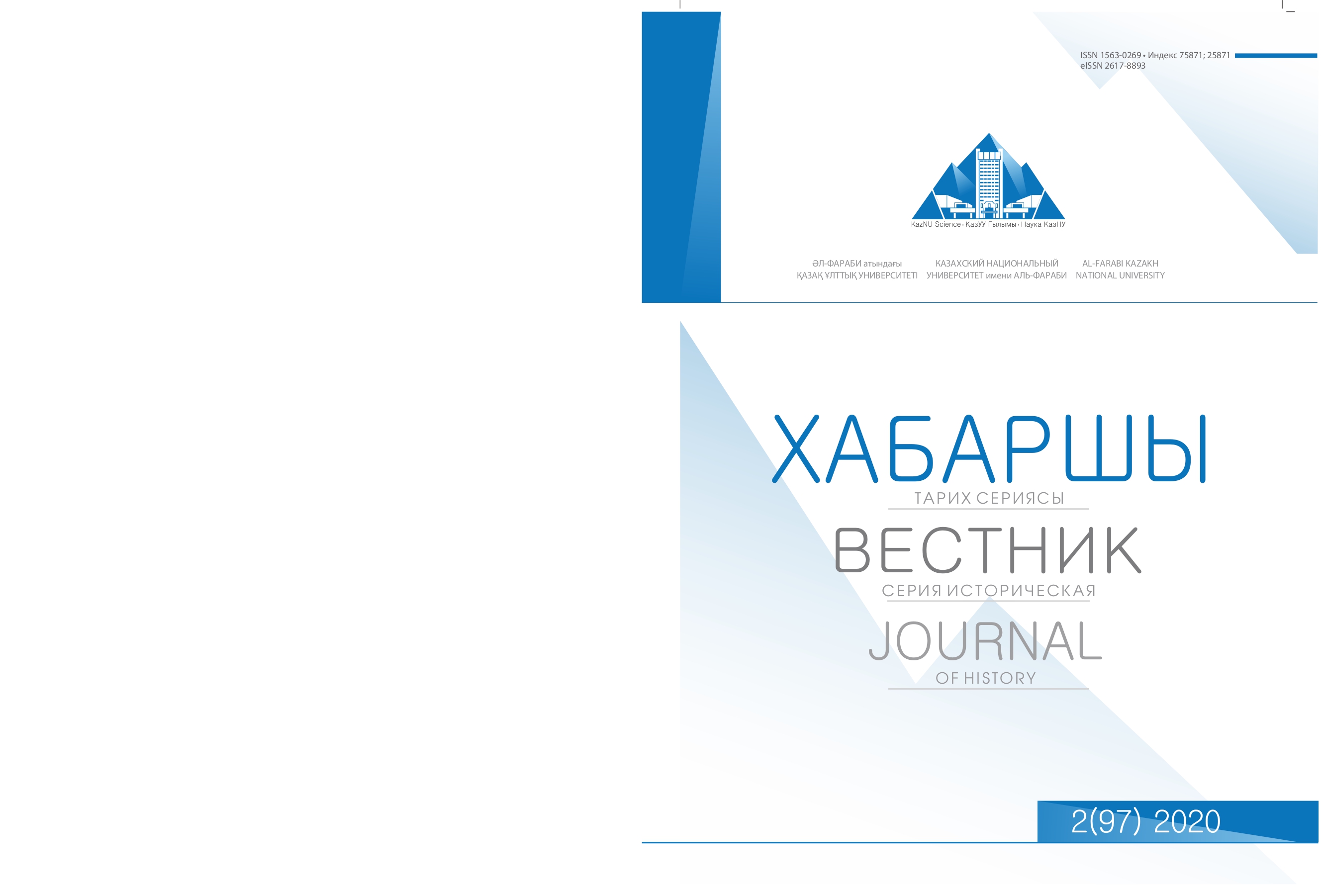Some aspects of the ≪Basmachi≫ movement and the role of Enver pasha in Turkestan
DOI:
https://doi.org/10.26577/jh.2020.v97.i2.03Abstract
The national independence movement, which swept almost every region of Turkestan from 1917
to 1934, was crushed with blood by the Soviet government. This word at different times took on different
meanings. Etymologically, «basmachi» comes from the verb “pressure” or engage in “hooliganism”.
Therefore, «basmachi» in translation from the Uzbek language means «bandit», «stop the road», «bully».
Over time, this word was used to express the general anti-Soviet movement in Turkestan. For this reason,
this movement, which occupies a very important place in the struggle for the independence of Turkestan,
does not refer to a popular uprising, but to an armed struggle against Soviet Russia. The name «basmachi»
first appears in Ferghana during the Russian Revolution. Similar actions are observed in tsarist times. The
movement swept Turkmenistan, Bashkortostan and Crimea. The Bashkir people at one time called Basmachism
the Khorasan revolution, that is «ayyar». The Basmachi did not touch the Muslims, but opposed
the Russian troops and the establishment of Soviet power. After the development of cotton growing and
the deterioration of the economy in Ferghana, the number of «basmachi» increased. Thus, this article sets
the goal – on the basis of Turkish and foreign historiography, to carry out a comparative analysis of the
«Basmachi» movement in Turkestan and to reveal the role of Enver Pasha in this movement.












